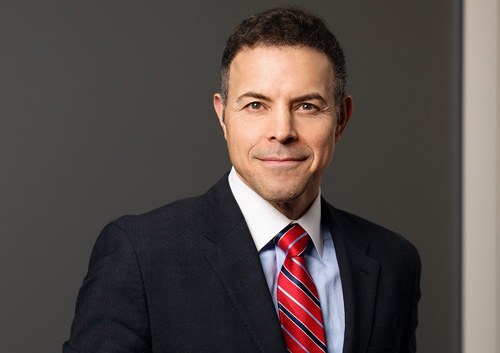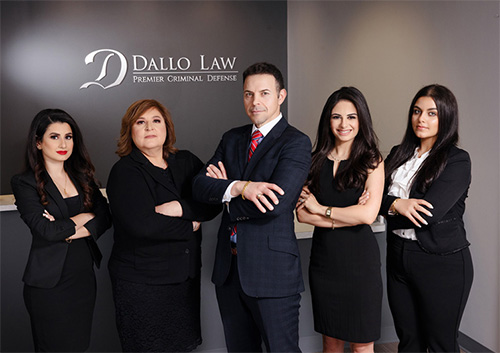The term “statutory rape” is not used in Michigan’s state law. Though we’ll use the colloquialism throughout this article, the proper term for “statutory rape” is third-degree criminal sexual conduct (CSC-III), and is a sex crime.
The age of consent is 16 in Michigan. This means that any sexual conduct with a person under the age of 16 is illegal and may constitute criminal sexual conduct. Other factors, such as the age of the victim and whether force or coercion was used, may elevate the crime to a higher degree.
We’ll explore some of these factors, as well as key definitions in statutory rape charges in the following article.
Oakland County Statutory Rape Defense Attorney
There are many reasons why an innocent person may be charged with statutory rape. Michigan identifies statutory rape as a strict liability crime. This means that someone could be fooled by documentation and still be liable. In such a case, you need a strong lawyer with a deep understanding of Michigan law.
Your freedom, livelihood, family, career, and reputation hang in the balance when facing sex crime charges. Attorney Dallo is Michigan’s go-to criminal defense attorney. He has a proven track record of winning sex crime cases and can offer aggressive legal representation.
Reach out to Dallo Law, P.C. at (248) 283-7000 to schedule your first consultation.
Information Center
- Understanding Statutory Rape Laws in Oakland County, MI
- Penalties for Criminal Sexual Conduct in Michigan
- Common Defenses Against CSC Charges
- Additional Resources
- Hire a Statutory Rape Defense Attorney in Oakland County
Statutory Rape Definitions
As mentioned previously, statutory rape is not the legal definition for CSC in Michigan. These sex crimes are listed in Michigan Penal Code 750.520b, 750.520c, and 750.520d.
There are three levels of sex crimes: third-degree, second-degree and first-degree. Third-degree sex crimes may result in a maximum of 15 years in prison, while first-degree charges may result in a life sentence. These crimes are taken very seriously.
Statutory Rape in its most basic form consists of engaging in sexual conduct with a person who is not of the age of consent (16) and has sex with a person at least 5 years older. Other factors may enhance or aggravate this crime. To understand these differences, we’ll go over a few cases.
Case 1:
Jake is a 21 year-old college student. He goes to a house party with some old high-school friends and finds himself having sex with Sarah, a 15-year-old high-school sophomore. The act is consensual.
Some of Sarah’s friends find out, however, and report Jake to the police. Jake is arrested and charged with CSC-III. What happened?
Under Michigan Law, minors under the age of consent are not legally able to consent. There is a small grace period to allow for couples in the same age group (high school freshmen, seniors), but past a five-year gap, the conduct becomes criminal.
In the above case, it seems unlikely that Jake would be sent to prison, but there are many factors that mitigate his sentencing, if he is prosecuted:
- Were the couple dating prior to engaging in the act?
- Was alcohol involved prior to the act?
- Do Sarah’s parents want to press charges?
- Does Sarah want to press charges?
- Does Jake have a history of targeting underage women, or a criminal history?
Even if Jake is not criminally prosecuted, his behavior may be reported to his university and it is likely he could lose his scholarship, may be asked to leave campus or face other consequences.
Case 2:
Savannah is a 25 year-old teacher at a middle school. After months of pressure, she convinces Samuel, a 12-year-old boy, to have sex with her in exchange for raising his grade. After the act, Samuel is ashamed and tells his parents. His parents inform the police, and an investigation is conducted. The school district and police are convinced that Savannah took advantage of Samuel, and charge her with criminal sexual conduct in the second degree. What happened?
There are multiple factors at play.
- Samuel is below the age of consent, 16
- Samuel is considered a ‘child’, below the age of 13
- Savannah is a teacher in the same school as Samuel, and directly teaches his classes
Under Michigan law, any sexual act with a person under the age of 13 automatically results in a second-degree CSC charge. In addition, sexual conduct between a teacher and student is also a second-degree CSC charge.
If convicted, it is likely that Savannah would face the following penalties:
- Up to 15 years in prison
- Loss of teaching license in any state
- Placement on a sexual offender registry for 15 or 25 years or for life.
- Lifetime electronic monitoring
- A protection order against Savannah
First-Degree Sexual Conduct
Under Michigan state law, Savannah could alternately be prosecuted as a first-degree CSC charge. There is little distinction between a second and first-degree charge in Michigan law, as it is left for the court to decide.
The following factors may result in a CSC charge being prosecuted in the first degree:
- The presence of a weapon like a gun or a knife
- Force, rather than coercion
- The presence of any other felony, such as sexual assault
- Presence of multiple people in the committal of statutory rape
- Physical abuse or physical injury inflicted upon the victim
- The victim is mentally incapable, mentally disabled or incapacitated, or any other similar state of lesser ability
Penalties for Statutory Rape
The penalties for any CSC charge are steep. The following table is a felony penalty schedule for first, second and third-degree criminal sexual conduct charges in Michigan.
| First-Degree | Felony Conviction | Up to 15 years in prison |
| Second-Degree | Felony Conviction | Up to 15 years in prison |
| Third-Degree | Felony Conviction | Up to life in prison |
In addition to the above penalties, the defendant may be responsible for the following:
- Registration of a sex offender for an indeterminate amount of time. This could be for 5 years or for life.
- Revocation of licenses. These could be teaching licenses, counselors or psychology licenses, or any license that would result in contact with a minor.
- Loss of housing opportunities. Many landlords and renters will not rent out to convicted felons. Similarly, taking out loans becomes much more expensive or impossible for convicted felons.
- Loss of education opportunities. Secondary education institutions will refuse entry to convicted felons. This can make rehabilitation after incarceration more difficult.
- Electronic monitoring and reporting. The sex offender may be required to use an electronic monitoring device and report to a parole or local county office regularly.
For juvenile offenders (under 18) that have sex with a person below 16 or 13, there may be pretrial processes and reduced sentencing options. For more information, visit our article on juvenile offenders.
Defenses
Generally speaking, there is little defense against statutory rape charges if digital or physical evidence exists. Therefore, a lawyer may instead seek to mitigate the charges or convince the prosecutor to drop the case. We’ll go over some of the most common defense and mitigation tactics here.
Lack of Knowledge: If the accused genuinely did not know the age of the alleged victim and can demonstrate that they took reasonable steps to verify it, this may go a long ways towards mitigating or dropping the charges. However, if the prosecution and especially the alleged victims parents are adament on pressing charges, it may not matter.
False Accusation: If there is evidence to suggest that the accusation is false or motivated by other factors, it could be a defense. Some teachers, generally male, find themselves the target of false accusations by angry students. If the defendant did not engage in sexual activity, the lawyer will focus on the lack of evidence to dispute the claim.
Close age: If the two parties are within five years of each other and the youngest is above the age of 13, then the state may accept a close-age argument as a defense.
Additional Resources
Michigan Sex Offender Registry | Michigan State Police – Visit the official State of Michigan website to learn more about how the Michigan Sex Offender Registration Program operates and to view answers to FAQs about the Registry itself.
Michigan Sex Crime Laws – Visit the official website for the Michigan Legislature to learn more about their laws surrounding sex crimes. Access the site to learn the penalties for criminal sexual conduct, statutory rape, prostitution and other related sex crimes.
Diversion Section | Wayne County, Michigan – Visit the official Wayne County website to explore one county’s explanation and approach to pretrial diversion opportunities for low-level offenders.
Hire a Statutory Rape Defense Attorney in Oakland County
Your freedom, livelihood, family, career, and reputation hang in the balance when facing sex crime charges. Attorney Dallo is Michigan’s go-to criminal defense attorney. He has a proven track record of winning sex crime cases and can offer aggressive legal representation.
Reach out to Dallo Law, P.C. at (248) 283-7000 to schedule your first consultation.









